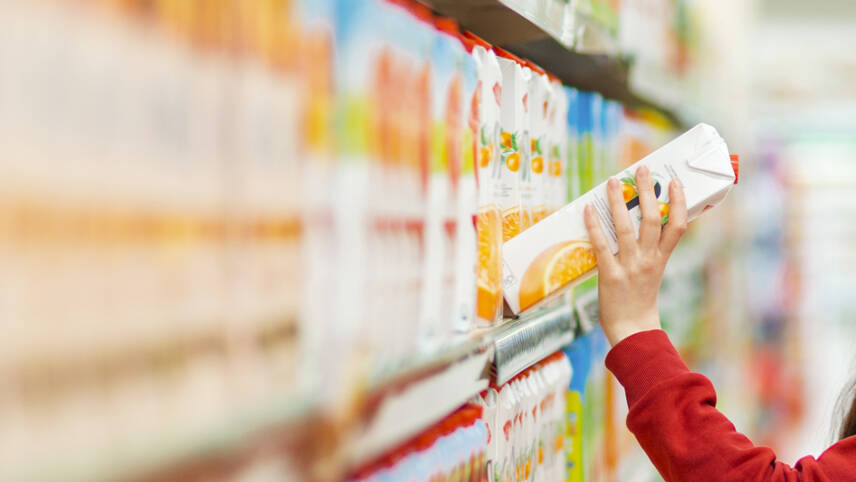Register for free and continue reading
Join our growing army of changemakers and get unlimited access to our premium content

Defra is proposing to exclude cartons from England's DRS
The UK Government first promised to launch a national DRS for England through the Resources and Waste Strategy in December 2018. The Strategy’s implementation has been plagued by Covid-19-related delays and, following consultations, the DRS is likely to be launched in 2024 at the earliest.
DRSs see an extra charge applied to drinks when customers buy them, and customers are able to get the deposit back when they return the containers. This approach is believed to help reduce littering and improve recycling rates, with positive movement in these fields in nations including Germany.
The MPs to have written to Eustice are concerned that, as consultations progress, the Government seems to be tilting its approach to the DRS in favour of an ‘on-the-go’ model. This model would not cover all materials nor all container sizes, prioritising PET bottles and cans over other materials, and focusing mainly on the drinks people use outside of the home.
In contrast, an ‘all-in’ model would cover a wider range of materials and a broader range of packaging sizes. This was the model of choice for former Environment Secretary Michael Gove.
“By aligning the scheme more closely with current household recycling,” the MPs state, recycling rate improvements resulting from a DRS would be maximised. Their argument is that consumers would most likely place cartons and other kinds of beverage packaging into return systems, as they are encouraged to do with dry mixed recycling at home in most areas.
The letter states: “The DRS presents the UK with the opportunity to foster an improved recycling culture, take a step towards realising the country’s net-zero targets, and achieve a truly circular economy. But to ensure the DRS achieves these goals, we urge you to introduce the most ambitious scheme possible, primarily by including as many materials as possible, including cartons.
“In the case of cartons, the material is already part of DRS in Australia and Canada, and trials in Serbia and Sweden have proven that cartons work well in reverse vending machines. There is no issue with onward processing of cartons collected in the DRS, with a dedicated carton recycling plant near Halifax.”
Most of the MPs supporting the letter are Liberal Democrats. Signatories include the Party’s leader Ed Davey, former leader Tim Farron and climate emergency and energy spokesperson Wera Hobhouse.
Labour MPs signing the letter are Alistair Carmichael, Kim Johnson, Grahame Morris, Mick Whiteley and Mohammad Yasin. It is also supported by former Labour MP, now independent, Claudia Webbe, and Conservative MP Matthew Offord.
The letter has been welcomed by the green groups, trade bodies and businesses to have already advocated for the ‘all in’ model, including major carton manufacturer Tetra Pak.
“I am delighted to see this cross-party group of MPs take such a firm stance on the need to include more materials, particularly beverage cartons, in the UK’s DRS,” said Tetra Pak’s sustainability director for North Europ, Dragan Rajkovic. “Tetra Pak has been calling on Defra to raise its ambitions and widen the Scheme since it published its first proposals three years ago – doing so now would demonstrate a drive to build a true circular economy and achieve net-zero.”
Behaviour change for a successful DRS
The news comes shortly after Suntory Beverage & Food Great Britain and Ireland, the firm which makes Lucozade and Ribena products, published the results of a major study on how consumers react to DRSs being implemented.
Around 8,000 people were involved in the study, with the company assessing behaviours at grocery stores and in the home.
Shoppers were asked to pay a 20p deposit fee per item on the drinks they purchased in-store. They were informed that they would get the deposit back if they returned the packaging in-store.
It was found that customers were initially surprised at the extra cost, but swiftly accepted it and began to think about changing their beverage purchasing and binning habits. Within seven weeks, most of the people studied had stopped treating plastic drinks bottles as waste and started mentally assigning them value, showing moves to adjust their routines to return packaging and, in some cases, buying less packaged products in plastic the first instance.
Suntory Beverage & Food Great Britain and Ireland emphasised that getting these positive behaviour change results at a national scale will rely on DRSs being “as simple and similar as possible across the UK, to avoid complexity and confusion for retailers”.
“DRSs will bring about one of the biggest changes in shopper behaviour in a generation…. This will positively transform the shopper relationship with plastic and cans,” said the firm’s head of customer marketing Matthew Deane. However, it’s important retailers understand this shift so they are in the best place to adapt to these forthcoming changes. We’re on hand to help them on this journey.”


Please login or Register to leave a comment.